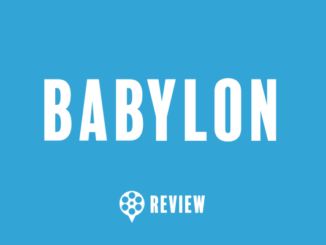As you read this review, headlines will continue to pour in about the record-breaking success of Black Panther. From placing itself in the top five opening weekends of all time to moviegoers seeing it multiple times in one weekend, we haven’t had a blockbuster like this in quite some time. Sure we have had films clear $200 million in three days but they don’t look quite like this one. Black Panther is a great comic book film and it’s a great Marvel movie along with providing audiences with the necessary thrills that you would usually find in a summer movie release but its resonance goes much beyond these feats. We have had African American superheroes before (Marvel’s Blade immediately springs to mind) but they have never been backed up by a predominately African American cast. There is this myth that featuring a mostly black cast won’t make a film viable for overseas markets but Black Panther’s $400 million+ global opening proves this to be false. This is a culture yearning to be represented and when given an adequate product, the response will be significant. Black Panther is all about representation and this weekend many felt represented and that’s why the film is so very important in this day and age. This is a popcorn movie with a message and that message was heard loud and clear.
In agreeing to co-write and direct Black Panther, Ryan Coogler, who previously made two strong films in Fruitvale Station and Creed (he’s three for three with solid films at the young age of only 31) ensured that he would have creative say so about how he presented T’Challa’s story. While remaining faithful to the character’s basic comic book backstory, Coogler takes the film in some unexpected, but much needed, directions. There’s enough action to please any action purest but it’s intermingled with more serious-minded and thought-provoking experience. If there has ever been a more political superhero movie, it doesn’t immediately spring to mind although the X-Men movies probably come the closest to touching on real-world issues. Black Panther is in-your-face with its political perspective, neither soft-peddling its allegorical aspects nor shying away from an ideology that could be controversial in some circles. The movie embraces the philosophy of inclusion, rejecting competing notions of isolation, nationalism, and imperialism. Black Panther isn’t content with characters in cool costumes destroying each other in a special effects inspired setting. There is more at stake here and that immediately sets the film apart from the pack.
Although this represents the first full outing for the Black Panther character (who made his debut in Captain America: Civil War), it’s more of an “introduction story” rather than an “origin story.” Coogler’s approach doesn’t waste the audience’s time with a blow-by-blow description of how the Black Panther got his powers and what he initially does with them. Instead, he tells a real story and sprinkles in the details along the way. It’s a more satisfying method of storytelling that what we sometimes have to struggle through with initial introductions to would be heroes. By allowing us to fill in the blanks, the narrative doesn’t drag and allows the story to propel itself to hit its necessary beats.
After a prologue, which provides background, context, and an establishing scene set in 1992, the action shifts to the modern-day. The setting is the small (fictional) East African country of Wakanda. To the rest of the world, Wakanda is mired in the third-world and, like its neighbors, struggling with poverty and a lack of resources. That image is a sham, however – an illusion maintained by Wakanda’s superior technology to hide the nation’s true nature from those who would plunder its most valuable resource, the mineral vibranium. The wonders of Wakanda are known only to its residents. T’Challa (Chadwick Boseman) assumes the throne after the events of Captain America: Civil War (in which his father is killed in a terrorist bombing). Armed with technology developed by his spunky super-scientist sister, Shuri (Letitia Wright), and accompanied by his former lover, Nakia (Lupita Nyong’o), and the head of the military, Okoye (Danai Gurira), T’Challa travels to South Korea to capture an amoral mercenary named Ulysses Klaue (Andy Serkis), who is selling vibranium on the black market. On this mission, he encounters CIA agent Everett Ross (Martin Freeman), who previously appeared in Captain America: Civil War. The mission to bring Klaue back to Wakanda ends in failure. T’Challa returns home not with a criminal in tow but with the critically injured Ross, who takes a bullet to save Nakia. A short time later, a stranger, Erik Killmonger (Michael B. Jordan), appears at Wakanda’s border with an unconventional gift and a shocking story – one that allows him to challenge T’Challa in mortal combat for the right to lead Wakanda.
Black Panther is the first MCU movie to feature a black superhero as the title character. That’s not to say that is the first Marvel movie with that distinction. As mentioned before, Wesley Snipes’ Blade, who made three appearances in the late 1990s and early 2000s, broke the “color barrier”, although the cinematic superhero landscape of that era was much different a much different environment. Black Panther celebrates its ethnicity, ensuring that nearly every role – big, small, and in-between – is played by a black actor. On some level, Black Panther is a pushback against a Hollywood culture that shies away from “black films” made for mainstream audiences. Again, it’s the myth that the film just won’t hit with the necessary moviegoers to make money. Ryan Coogler takes things a step further by employing a reversal of a typical stereotype. Many white-dominated movies feature a token black character (an inclusion that allows them to claim they’re being racially diverse). Coogler flips this by making Martin Freeman the token white character. Aside from Freeman and Andy Serkis (old buddies with a Peter Jackson connection), the only non-black actor with any noteworthy screen presence is Stan Lee, making his expected cameo.
Perhaps Black Panther’s biggest accomplishment, and there are many to celebrate, is the nature of its villain. Marvel, despite all of their successes, had always had issues with creating villains for their Cinematic Universe that don’t escape the trappings of their end of the world predecessors. Black Panther’s chief villain, the angry and revenge-minded Killmonger, is a different sort of bad guy than what we’re accustomed to getting in superhero movies. Unafflicted by megalomania, Killmonger is motivated by a personal mission and a desire to use violence and chaos to fight against the worldwide oppression of black people. He intends to use the resources of Wakanda to achieve that. He is perhaps the most nuanced antagonist ever to emerge from the MCU canon and one could argue he may be one of the best villains of any superhero movie to date. He is not demonized; in fact, the screenplay goes to great lengths to emphasize the tragedy of his backstory and how were it not for the misguided actions of “good” people, he might never have become the man he has turned into. In keeping with superhero movie expectations, there is a climactic battle between Killmonger and T’Challa but, unlike the resolution of most comic book movies, it’s not an anticlimax and the conclusion of the struggle is not by-the-numbers.
The casting of Black Panther allows the filmmakers to assemble a group of today’s best young black actors, with a veteran or two thrown in to further elevate the material. Chadwick Boseman’s T’Challa is another fine addition to the MCU because he’s a bit more nuanced than the heroes we have seen before. Boseman is a versatile performer whose previous roles include Jackie Robinson, James Brown, and Thurgood Marshall. Some have made jokes about all the real-life people he has played but it’s only an indication of his incredible range. This is another role, much different from the ones he has played before, that showcases a talent that has yet to disappoint. Michael B. Jordan makes his third appearance for Coogler, following leads in Fruitvale Station and Creed, and it seems that their union is a poignant one Michael B. Jordan is a solid actor and has resonated in everything I’ve seen him in but I think this is his best work. He’s intense when necessary, extremely intimidating when called upon but also shows shades of sympathy that make his turn as Killmonger work on many levels. Lupita Nyong’o, Danai Gurira, and Letitia Wright play the three strong, self-assured women who fight alongside T’Challa and they all manage to steal their fair share of scenes. Wonder Woman may have set this new tone of women kicking ass in movies but young girls of color having this example is a powerful image to see on screen. Angela Bassett, as T’Challa’s mother, and Forest Whitaker, as his mentor, represent an older generation of African American actors and it’s refreshing seeing them in a huge tentpole film worthy of their talents. Martin Freeman and Andy Serkis help connect Black Panther to the MCU and, despite obvious token white guy observations, they never seem out of place. In fact, their characters are also important to the narrative and represent another angle of inclusion that resonates throughout the film’s story.
Although rooted in superhero tradition, Black Panther is never hampered by it. In the world of audacious comic book films that go beyond the norm (Deadpool, Logan and Wonder Woman are other fine examples), Black Panther might stand out as the most important. I have loved seeing the viral videos of the film being celebrated all over the world and hearing the stories of screenings being bought out for young black boys and girls, who desperately need to see this heroism on screen. Black Panther is more than a film, it’s an event and it’s a moment in film history that will be remembered for all the right reasons. When you see #WakandaForever it will be much more than a topical hashtag of the moment. It will remind us of this moment in time that representation on such a large scale was finally given its due.





